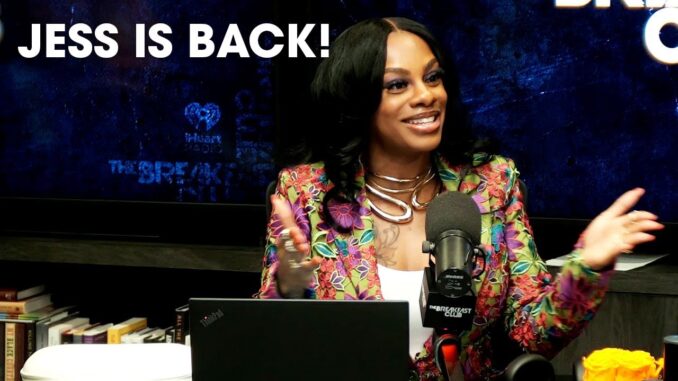
The Echo Chamber and the Human Cost: Jess Hilarious Speaks Out on the Trans Community
In the cacophonous digital amphitheater of modern public discourse, where opinions are currency and outrage often yields the highest dividends, the voices of celebrities carry disproportionate weight. When a figure like comedian Jess Hilarious "speaks out" on a sensitive and complex topic like the trans community, the ensuing ripples extend far beyond mere commentary. Her remarks, often delivered with an unfiltered candor characteristic of her comedic persona, serve as a potent illustration of the fraught intersection between celebrity platforms, contentious social issues, and the very real human cost borne by marginalized identities.
Jess Hilarious’s commentary, typically shared through social media rants or podcast appearances, often embodies a "kitchen table" common sense approach to highly nuanced topics. Her style is unvarnished, direct, and frequently punctuated by a visceral discomfort with concepts that challenge conventional understandings of gender and identity. Whether discussing bathroom access, gender-affirming care, or the evolving lexicon surrounding trans experiences, her rhetoric often veers into dismissiveness, rooted in what she perceives as biological fact or a simple lack of understanding. The casual nature of these pronouncements, devoid of academic rigor or studied empathy, ironically lends them an air of authenticity for a segment of her audience, who feel their own unarticulated discomforts and traditional views are being validated by a public figure.
Yet, it is precisely this unvarnished authenticity that makes such commentary so perilous. For the transgender community, every public utterance that questions their existence, invalidates their identity, or misrepresents their lives is not merely an opinion; it is another chip taken from the fragile edifice of their societal acceptance and safety. In a climate where anti-trans legislation is proliferating globally, and violence against trans individuals, particularly trans women of color, remains alarmingly high, casual dismissals from influential figures contribute to a broader narrative of othering. Her comments, however innocently intended or rooted in personal discomfort, echo louder in a world already primed for prejudice. They reinforce stereotypes, sow misinformation, and make the everyday lives of trans people – from navigating public spaces to accessing healthcare – demonstrably harder and more perilous. It's the insidious drip of seemingly minor skepticism that ultimately carves deep fissures of misunderstanding and hostility.
The Jess Hilarious phenomenon, then, illustrates a critical paradox of modern celebrity and free speech. On one hand, every individual, famous or not, has the right to express their views. On the other, the immense reach of a celebrity platform carries with it an inherent, if often unacknowledged, responsibility. When a comedian, whose craft relies on observation and sometimes provocation, ventures into discussions affecting human rights and dignity, the expectation shifts. The audience is no longer merely laughing; they are internalizing, legitimizing, and often weaponizing the sentiments expressed. The casual "I don't get it" morphs into "they shouldn't exist," amplified across digital networks, and manifesting in real-world discrimination and aggression.
In this crucible of public debate, the call for understanding and informed dialogue often feels like a whisper against a roar. Jess Hilarious’s commentary, regardless of intent, highlights the urgent need for empathy-driven conversations, not just about the trans community, but about any marginalized group. It calls upon public figures to consider the seismic tremors their words can create, and it challenges audiences to demand nuance over knee-jerk reactions.
Ultimately, Jess Hilarious speaking out on the trans community is more than just another celebrity controversy; it is a vivid illustration of the precarious tightrope walked by vulnerable populations in a world saturated with opinion. It reminds us that while the digital age offers unprecedented platforms for expression, it also places an extraordinary burden on those whose very existence becomes a topic of debate. The truest measure of our societal progress will not be found in the loudest voices, but in our collective capacity to listen to the most vulnerable, to learn with an open mind, and to ensure that no one’s humanity is up for casual comedic dissection.